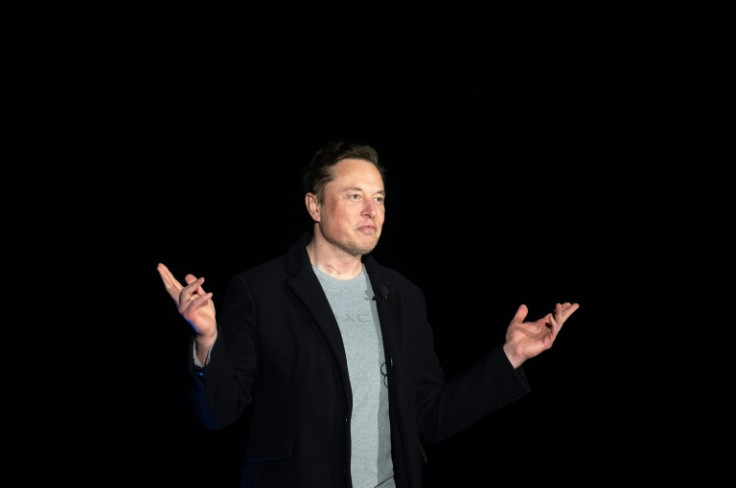Musk says China detailed plans to regulate AI
Top Chinese officials told Elon Musk about plans to launch new regulations on artificial intelligence on his recent trip to the Asian giant.

Top Chinese officials told Elon Musk about plans to launch new regulations on artificial intelligence on his recent trip to the Asian giant, the tech billionaire said Monday, in his first comments on the two-day visit.
The Twitter owner and Tesla CEO -- one of the world's richest men -- held meetings with senior officials in Beijing and employees in Shanghai last week.
"Something that is worth noting is that on my recent trip to China, with the senior leadership there, we had, I think, some very productive discussions on artificial intelligence risks, and the need for some oversight or regulation," Musk said.
"And my understanding from those conversations is that China will be initiating AI regulation in China."
Musk, whose extensive interests in China have long raised eyebrows in Washington, spoke about the exchange in a livestreamed Twitter discussion with Democratic presidential hopeful and vaccine conspiracy theorist Robert Kennedy Jr, the nephew of John F. Kennedy.
Musk did not tweet while in China and Tesla has not released readouts of Musk's meeting with officials.
But official Chinese channels said he lavished praise on the country, including for its "vitality and promise," and expressed "full confidence in the China market."
A flurry of Chinese companies have been rushing to develop AI services that can mimic human speech since San Francisco-based OpenAI launched ChatGPT in November.
But rapid advancements have stoked global alarm over the technology's potential for disinformation and misuse.
Musk didn't elaborate on his discussions in China but was likely referring to a sweeping draft law requiring new AI products to undergo a security assessment before release and a process ensuring that they reflect "core socialist values."
The "Administrative Measures for Generative Artificial Intelligence Services" edict bans content promoting "terrorist or extremist propaganda," "ethnic hatred" or "other content that may disrupt economic and social order."
Under Beijing's highly centralized political system, the measures are almost certain to become law.
Musk has caused controversy by suggesting the self-ruled island of Taiwan should become part of China -- a stance that was welcomed by Chinese officials but which deeply angered Taipei.
The 51-year-old South African native described his meetings in China as "very promising."
"I pointed out that if there is a digital super intelligence that is overwhelmingly powerful, developed in China, it is actually a risk to the sovereignty of the Chinese government," he said.
"And I think they took that concern to heart."

© Copyright AFP 2025. All rights reserved.





















